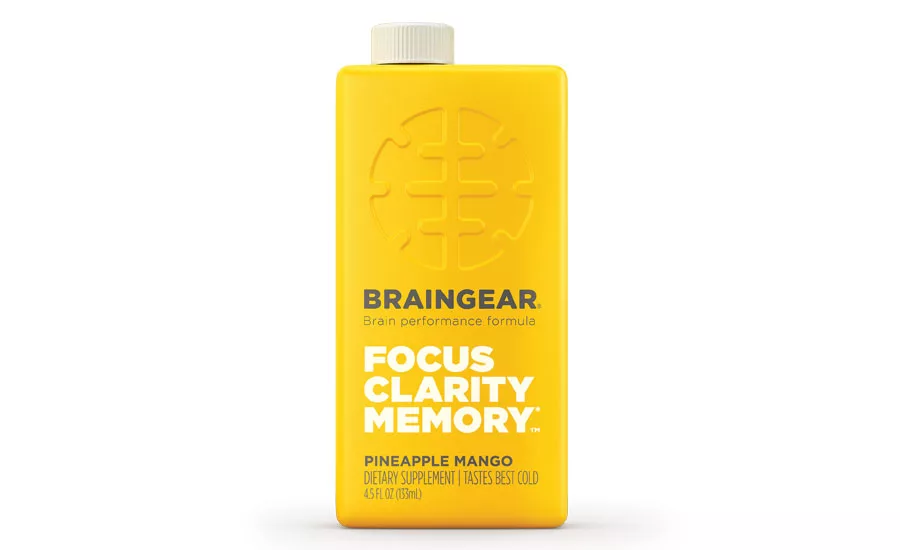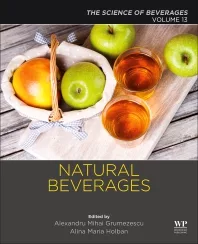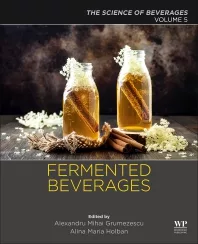Cognitive health, energy ingredient usage grows
Functional beverage, health and wellness influence demand

With the expansive real-life and digital distractions present in consumers’ lives, mental acuity and physical stamina can be vital assets when trying to achieve a productive and balanced lifestyle. However, day planners, alerts or even assistants only can offer so much aid. To fuel their minds and bodies, more consumers are turning to function-based consumer packaged goods to achieve their goals.
“There is great growth opportunity within the functional beverage market as a number of different groups are actively seeking out cognitive health and energy benefits,” says Matt Phillips, vice president of business development for Bioriginal Food & Science Corp., Saskatoon, Canada. “Year after year, this category shows promise. Up until now, it has been the niche domain of biohackers, Silicon Valley types, MBA candidates and professional gamers. But with increased consumer interest in products that contribute to overall health and wellness, 2018 is looking to be a breakthrough year for crossing over into the mainstream.”
Market research reports also point to the growth potential for these markets. Citing data from a Research and Markets report titled “Global Brain Health Supplements Market 2016 to 2024: Focus on Memory Enhancement, Mood and Depression, Attention and Focus, Longevity and Anti-aging, Sleep, Recovery and Dream Enhancement and Anxiety,” Samantha Ford, business development director for City of Industry, Calif.-based AIDP, notes that the brain health supplements market currently stands at $2.3 billion. It is expected to grow at a compound annual growth rate of 19.6 percent during the next eight years to reach $11.6 billion by 2024, she adds, citing the June 2017 report.
This projection can be attributed to a broader consumer base that’s interested in cognitive health and energy supplementation.
“The wider audience appeal now also includes fitness enthusiasts — both elite and recreational athletes — who are recognizing the link between cognitive health and sports performance,” Bioriginal’s Phillips says. “On-the-go moms who are looking for healthy and functional beverages that help them keep up with their busy lifestyles. Gen-Xers and younger, active baby boomers are also looking for functional beverages with cognitive health and energy benefits. And we can’t forget about the older generations who are looking to maintain healthy cognitive function.”
AIDP’s Ford adds that being conscious of cognitive supplementation is important throughout a person’s life, not just when they think memory functions are more likely to decline.
“The brain is one of the hardest working organs in our body,” she says. “With age, the brain starts to lose efficiency, resulting in all too familiar symptoms such as trouble with memory, decreased attention, poor sleep quality and anxiety. These issues affect younger and middle-aged adults just as they do older adults, especially in today’s fast-paced society. People are increasingly turning to natural, convenient and quality solutions to target these issues and support optimum brain function, no matter the stage of life.”
In fact, the brain can lose elasticity, which affects brain function, as early as 25, Ford notes. “Factors like stress, environmental pollutants and digital stimulation all bombard us starting early in life,” she says. “It’s never too early to think about supplementing your diet with high-quality nutrients.”
Barbara Davis, vice president of medical and scientific affairs for Morristown, N.J.-based PLT Health Solutions, highlights the uniqueness of cognitive health when it comes to the supplement and functional food and beverage markets. For instance, she says cognitive health products generally are comprised of different target benefits, which are attention, memory, learning, language, reasoning, problem solving, perception, mood and sleep.
Recognizing that the focus of cognitive health has centered on pre-natal/childhood and seniors, which are important demographics, Davis says the market has an opportunity to expand its consumer reach.
“At PLT Health Solutions, recently, we have been focusing on what we consider to be an underserved demographic — the 18 to 54 age range,” she says. “Within this group, we see intense interest in issues such as ‘peak performance,’ ‘well-being’ and ‘quality of life.’ The market opportunity with this group is massive. Peak performers, including knowledge workers and students, make up 40 percent of the U.S. population and are growing.
“Stress affects 75 million people in this group and the effects of stress on other aspects of cognitive function [are] significant,” Davis continues. “Similarly, the impact of cognitive performance on other aspects of life is becoming better understood by this demographic, as evidenced by the introduction of ingredients to improve mental performance in exercise via sports nutrition products and as a means of easier weight management.”
Energy also is an important opportunity for beverage-makers to reach consumers, Davis says. Citing the Council for Responsible Nutrition, she explains that energy is the No. 3 reason that consumers take supplements.
“Millennials comprise the largest group of energy product users, with over 67 percent of males and 47 percent of females in the 18 to 34 age range engaging with energy supplementation, [according to] Mintel, 2014,” she says. “Interestingly, though not surprisingly, parents are a fast-growing segment of the energy-consuming public with 26 percent of parents [of kids] under age five and 32 percent of parents [of kids] between six and 11 consuming energy products.”
Bioriginal’s Phillips explains that with cognitive and energy ingredients fulfilling various need states, it is important for beverage-makers and, ultimately, ingredient suppliers to identify and know the concerns of the various demographics.
“There are a variety of different goals that products in this category seek to address and certain benefits may resonate more with one group over another,” he says. “For example, fitness enthusiasts are concerned with boosting energy and gaining better focus and clarity to achieve peak performance. The same can be said of executives, professional gamers and millennials who are entering the workforce, starting families, etc. All of these groups are seeking optimal work performance in order to gain a competitive edge.
“Busy moms are seeking energy in addition to mental clarity and focus in order to deal with being productive in and out of the home,” Phillips continues. “While cognitive ingredients are most often associated with focus and clarity, ingredients that help de-stress and relax are also desired. Meanwhile, Gen-Xers and younger baby boomers are looking to maintain healthy mental function and prevent cognitive decline as they age.”
AIDP’s Ford adds that the functional solutions provided by cognitive and energy ingredients are driving increased demand.
“People want benefits-added versions of their foods and beverages,” she says. “They don’t necessarily want to take an extra pill, they want the benefit in foods and drinks they already purchase. Convenience is key. And people still want their functional products to taste ‘normal’ – i.e., an energy beverage or a drink with cognitive health benefits can’t have a strange aftertaste or texture. AIDP’s Magtein for cognitive health is unique in this aspect as it is odorless, tasteless and completely water-soluble, making it a convenient solution for a variety of beverage applications.”
Transparent, functional solutions
As beverage-makers recognize the various consumer groups that desire cognitive and energy solutions, companies are tasked with evaluating which ingredient options can fulfill the desired need states.
“Many ingredients offer cognitive health and energy benefits,” Bioriginal’s Phillips says. “Some of the more common and well-established ingredients include omega-3s (DHA and EPA), gingko biloba, antioxidants, ginseng and phosphatidylserine (PS).”
Phillips adds that Bioriginal’s clinically backed nutraceutical ingredients such as BioVinca vinpocetine, Novusetin fisetin and BioVin resveratrol are solutions for cognitive health products.
It also offers solutions to support the natural energy market. “For energy, coconut-derived medium-chain triglycerides (MCTs) continue to rise and are moving into the mainstream,” he explains. “MCTs are a natural source of quick energy that are quickly metabolized in the body and not stored as fat. Bioriginal offers a line of Coconut MCT products available in oil, emulsified liquid and powder formats.”
AIDP’s Ford notes that traditional medicines, including ginseng and adaptogenic herbs, have been used as cognitive health sources; however, manufacturers have developed “more inventive solutions with unique mechanisms of action to meet consumer needs.”
“[M]agnesium, particularly the proprietary magnesium l-threonate in Magtein, has been shown in clinical studies to not only slow down but reverse the effects of aging on the brain,” she adds. “Magtein is available in a number of recognized branded finished products found in natural foods and specialty stores.”
PLT Solutions’ Davis notes that the efficacy of cognitive and energy ingredients is vital for any formulation.
“Another significant challenge facing formulators who want to make claims on their products is the research support for ingredients,” she says. “For example, ingredients that are clinically studied in older populations or in those with cognitive impairment do not provide support for claims directed to healthy adults looking to maintain or enhance their cognitive abilities. So, it is important to ensure that the clinical research for ingredients is aligned with the claims formulators want to make.”
PLT scientifically supports the claims of its Zembrin Sceletium tortuosum and Synapsa Natural Memory Support, which represent two distinct needs in the cognitive health market, and zümXR Targeted Release Caffeine, which was released in 2017 for the energy space, Davis says.
Another growing trend among consumers that is impacting the ingredients market is the desire for transparency about the ingredients utilized in formulations.
“In general, people are seeking ‘cleaner’ products, given all the negative press on preservatives and artificial ingredients. Transparency is a big concern for today’s consumer,” AIDP’s Ford says. “The trend in natural and organic finished products means this has to start with the right ingredients. AIDP’s ingredient portfolio focuses on science-proven ‘sourced from nature’ ingredients.” BI
Looking for a reprint of this article?
From high-res PDFs to custom plaques, order your copy today!








